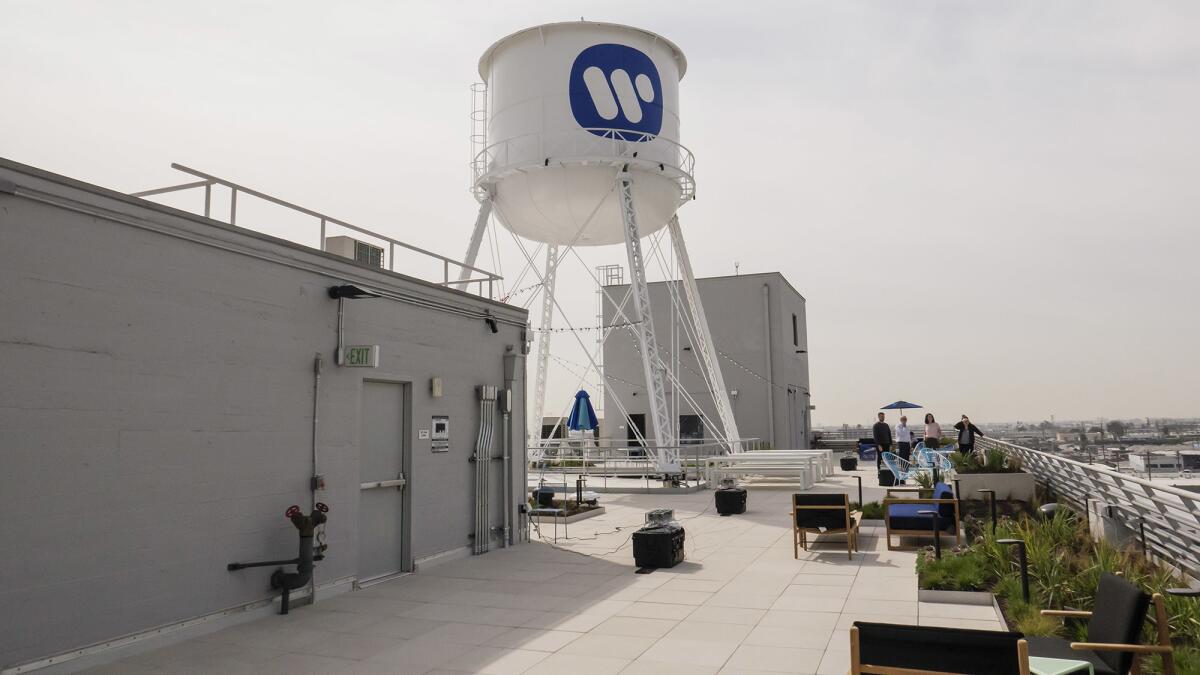Warner Music Group files for IPO in the latest sign of music industry resurgence

- Share via
When billionaire Len Blavatnik bought Warner Music Group for $3.3 billion in 2011, the major labels were still reeling from the digital revolution that had turned the business upside down.
Since then, the recorded music industry has gained significant ground thanks to the rise of subscription services, such as Spotify and Apple Music, that have helped to offset losses from piracy.
In the latest sign of renewed optimism, Warner Music Group, the third-largest music company by market share, has signaled its intent to go public.
The Los Angeles-based company, which represents artists including Ed Sheeran and Cardi B, said in a regulatory filing Thursday that it intends to hold an initial public offering, though it has not said when.
Warner Music has grown substantially in value from what it was worth nine years ago, when Blavatnik bought the publicly traded company and took it private, according to analysts.
A Warner Music spokesman declined to comment.
IPOs are inherently risky, and there’s no certainty that an offering by Warner Music will happen. Last year, talent agency owner Endeavor canceled plans to sell its shares, soon after exercise equipment maker Peloton’s stock struggled in its first day of trading.
Still, market conditions may be more ripe for Warner Music.
Rival Universal Music Group last year sold a 10% stake to Chinese tech giant Tencent for $3.4 billion, valuing the company at nearly $34 billion. The other major label is Sony Music Entertainment, which is owned by Tokyo-based electronics giant Sony Corp.
Warner Music this month reported strong first-quarter earnings. The company said its sales were $1.26 billion for the three months that ended in December, notching a high point in the label’s history as a stand-alone company. Warner Music broke off from Time Warner Inc. in 2004. Time Warner, the parent company of the Warner Bros. film studio and HBO, sold to AT&T Inc. in 2018.
Warner Music reported quarterly net income of $122 million, up 42% from the same period a year ago.
It’s not clear how much capital Warner Music might raise from its initial public offering, or what it would do with the cash, though it could use additional money to pursue acquisitions.
Warner Music’s revenues have grown steadily in the last several years, according to the IPO filing. Sales were $4.48 billion in fiscal 2019, up from $4.01 billion the year before and $3.58 billion in 2017.
The U.S. recorded music industry continued to grow in the first half of 2019, according to a September report from the Recording Industry Assn. of America, reflecting the most recently available figures.
Industry-wide revenues grew 18% to $5.4 billion in the first six months of the year. Streaming generated 80% of sales. In a sign of changing times, Apple last year indicated it would wind down its iTunes business in favor of its subscription streaming platform.
More to Read
Inside the business of entertainment
The Wide Shot brings you news, analysis and insights on everything from streaming wars to production — and what it all means for the future.
You may occasionally receive promotional content from the Los Angeles Times.











